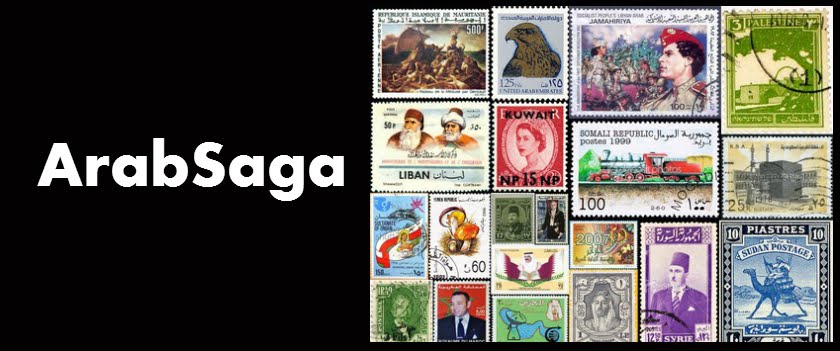 |
| From top left, clockwise: Michel Kilo, Farah Atassi, Fayez Sara and Samira Masalmeh |
The National Coalition of Syrian Revolutionary and Opposition Forces came back from the dead
by closing ranks overnight and adding 43 new members to its general assembly.
It took the Coalition a
full week of political wrangling and horse-trading at meetings in Istanbul to expand
its general assembly.
The assembly swelled from
63 members on the May 23 opening day of its session to 71 members by May 27 and
to 114 members – eight of them women -- on the session’s closing day early this
morning.
The total number of
National Coalition members is now 114, acting chief George Sabra told
reporters, adding that the general assembly has now adjourned until June 12,
when it would reconvene to elect a Coalition president.
The eight members voted in
on May 27 were Christian thinker and liberal bloc leader Michel Kilo, Syrian-American
activist Farah
Atassi, Jamal Suleiman, Alia Mansour, Noura el-Amir, Ahmad Abulkhair
Shukri, Ayman al-Aswad and Anwar Badr.
The 43 members co-opted
overnight, Sabra said, are “15 from the Chief of Staff of the Free Syrian Army,
14 from al-Hirak al-Thawri (the
Revolutionary Movement inside Syria) and 14 others.”
Eight of the “14 others” belong
to Kilo’s liberal bloc. The rest include two independents, two representing the
Local Coordination Committees and two belonging to the Syrian National Council.
The star newcomers on
Kilo’s list are Fayez Sara and Samira Masalmeh, the first woman to become editor-in-chief of Syria’s
state-run daily Tishreen. She was
fired after giving an interview to the satellite station Aljazeera in which she held the security
forces responsible for the killing by regime forces of 37 protesters in Deraa
on April 8, 2011.
Sabra said the group
had agreed a "plan for the transitional period", but did not
elaborate.
The group had also set
up agricultural, education and health committees to try and mitigate the
humanitarian crisis in Syria, he added.
S-330s, MiGs and Apples
On the international
front, Russian media are adamant today that Moscow has
not yet delivered advanced S-300 missiles to Syria, despite rather vague Syrian
indications to the contrary.
The
Russian business daily Vedomosti said
it was unclear whether or not the air-defense systems would be delivered this
year, while the daily Kommersant
reported the S-300 missiles would only be delivered in the second quarter of
2014. According to Kommersant, the
systems would need another six months of testing and training before they
become operational.
An arms industry source
also told Russia’s Interfax today Moscow is unlikely to deliver a shipment of
S-300s to Syria before the autumn. The
source also indicated the timing of the delivery of the arms, which has alarmed
Western governments, would depend on the development of the situation in Syria.
President Bashar
Al-Assad didn't say S-300s have already begun arriving in Syria, Fox News reported last night.
 |
| Gen. Kornukov (top) and the MiG-29 |
It noted two different
transcripts of the Al-Manar interview that were released, one in which Assad
claims Syria already received the S-300, and a second one released later in
which he used more careful, general language.
The second transcript
was inconclusive and in it, Assad says, "There are many arms agreements
between us and the Russians from a long time. The Russians are committed to
their agreements. All that was agreed with Russia will be implemented and part
of it has been already done. We and the Russians are in agreement and we will
continue to be like this."
Former Russian Air Force
Commander General Anatoly Kornukov told Interfax Syria needs at least ten S-300 divisions to fully protect its airspace.
“Our specialists,” he
said, will also have “to train Syrian colleagues if they receive such systems.
But everything will depend on the diligence of those trained. But the most
minimal period of training is half of a month or a month.”
But the head of Russian
aircraft maker MiG said separately Russia was counting on providing Syria with
10 MiG-29MM2
fighter planes, and was discussing details with a visiting Syrian delegation.
At the same time, the
United States yesterday relaxed restrictions
on the sale of mobile phones and other communications devices, software and
services to Iran.
A five-page document by the Treasury Department's
Office of Foreign Assets Control (OFAC) has authorized the following
transactions, effective immediately:
- The exportation or re-exportation, directly or indirectly, from the United States or by US persons, wherever located, to persons in Iran of fee-based services incident to the exchange of personal communications over the Internet, such as instant messaging, chat and e-mail, social networking, sharing of photos and movies, Web browsing, and blogging.
- The exportation or re-exportation, directly or indirectly, from the United States or by US persons, wherever located, to persons in Iran of consumer-grade Internet connectivity services and the provision, sale, or leasing of capacity on telecommunications transmission facilities (such as satellite or terrestrial network connectivity) incident to personal communications.
The shift marks the
first time Apple's iPhone can be exported legally to Iran.
The newly relaxed rules
have been interpreted as an effort to counter Tehran’s efforts to “silence its
people” before the June 14 presidential elections, which are two weeks away.
Really?
I wonder.
